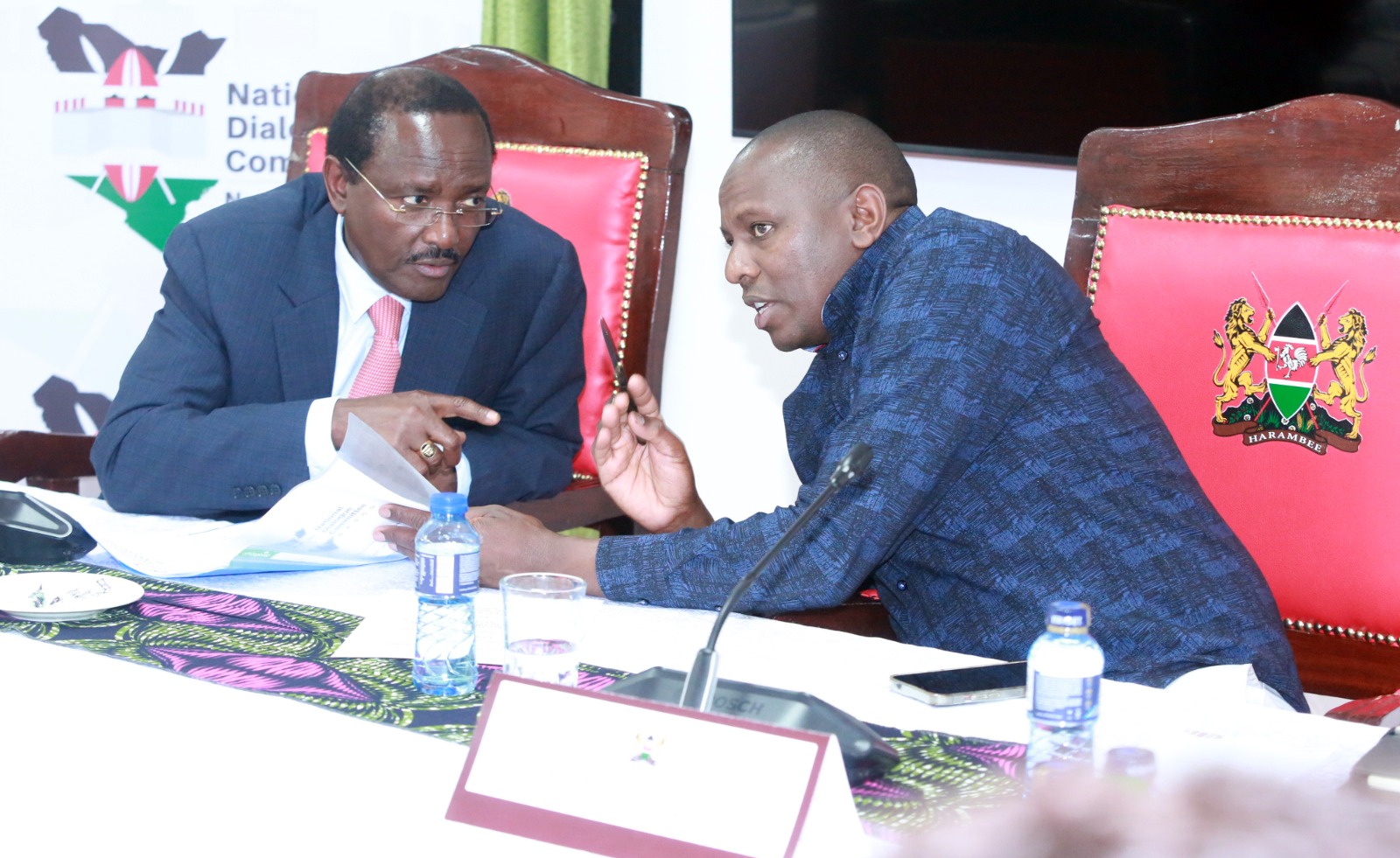The talks team sitting at the Bomas of Kenya has been challenged to allow the auditing of the 2022 presidential election.
Various petitions made to the National Dialogue Committee, which has representatives from both the ruling Kenya Kwanza and minority Azimio coalitions said that such an audit would help the country to identify weaknesses in the electoral system with a view to improving the conduct of future elections.
Among those who made presentations yesterday was the Elections Observer Group (ELOG) lobby group, which added its voice to the growing calls for a comprehensive audit of the electoral process regardless of whether the outcome was disputed or not.
“We need to always conduct a comprehensive audit after elections,” said ELOG national coordinator Mule Musau when he presented the lobby group’s views to the talks team at Bomas of Kenya.
“This audit should include activities carried out way before the election date; like party nominations.”
According to him, such an audit should not just cover the presidential election but the entire election. Kenya holds six simultaneous elections every five years, but the presidential race remains the most contested.
ELOG was among civil society groups that filed petitions challenging the outcome of presidential elections in 2017 and 2022. Its petition was among those that the Supreme Court upheld in 2017, leading to the nullification of the first presidential election.
However, ELOG was among the parties that lost when the court upheld the outcome of the 2022 presidential election.
On Monday, the Inter-Religious Council of Kenya called for the establishment of an independent and multi-sectoral task force to audit the 2022 electoral process.
According to the council, such an audit would identify loopholes and weaknesses in the electoral process and help in addressing the causes of perennial election disputes after presidential polls.
Later it will look into the issue of political parties with the main focus being interference in internal structures among other related issues.
Also appearing before the committee co-chaired by National Assembly Majority Leader Kimani Ichung’wah and Wiper leader Kalonzo was the Law Society of Kenya (LSK). Yesterday, it proposed that presidential elections be conducted on a separate day from the other five polls.
LSK President Eric Theuri said the move would give poll losers an opportunity to run for other seats.
According to him, the separation of election days would grant a reprieve to presidential candidates who lose, thus contributing to greater political stability.
“Kenyans will cast their votes to select their preferred presidential candidate. Once the president-elect is officially announced by the Independent Electoral and Boundaries Commission (IEBC), a subsequent five-tier general election will (sic) be conducted,” Theuri proposed. “Candidates who did not succeed in the presidential election will still be eligible to compete for these other five elective positions.”
LSK appeared to differ with ELOG on role of the Judiciary, saying courts should only determine election related disputes, not audit elections.
He said that no candidate should be involved in the recruitment of IEBC commissioners to ensure that the poll results are not disputed.
His view differs with that of Azimio, which has proposed that parties be given slots to pick electoral commissioners.
“IEBC is funded by the public and should, therefore, show Kenyans how every shilling was spent. There should be transparency on how money was spent,” he told the talks team.
On Friday, Nandi Senator Samson Cherargei stirred a storm about the election when he called for an amendment of the electoral law to increase the presidential term to seven years from the current five.
Cherargei told the Bomas team that the current five-year term was insufficient for a winning candidate to create an impact, adding that an elected head of State requires sufficient time to run government and form a formidable team to implement the election manifesto.
His views were roundly condemned, including by Kenya Kwanza, who described the proposal as the senator’s personal views and not the position of the ruling coalition.
The Bomas team will continue to receive submissions, in addition to the memoranda and petitions it has so far received. Once the talks are over, its recommendations will be tabled before Parliament for adoption.
By Fred Azelwa.
